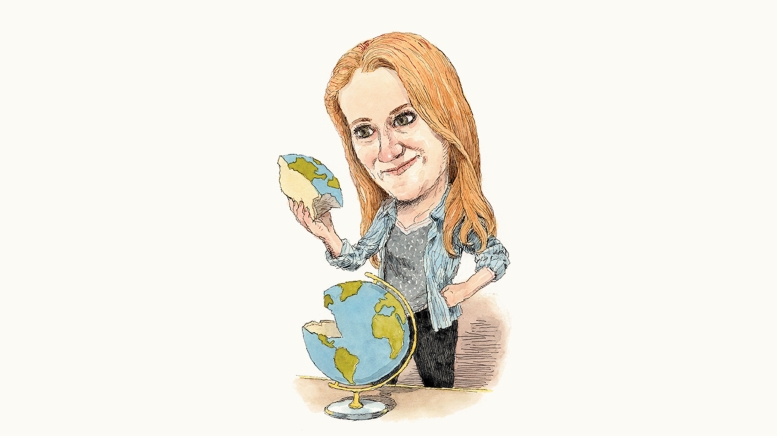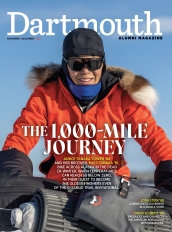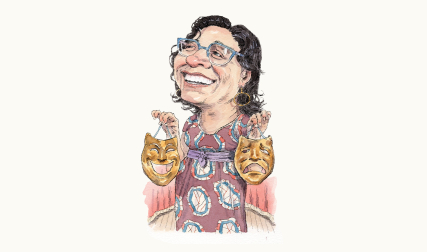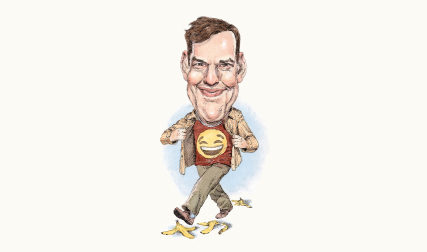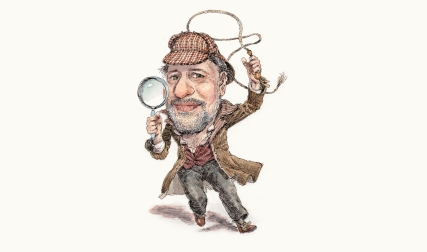“There’s no question foreign assistance advances America’s foreign policy, national security, and economic interests, but there is no natural constituency for that assistance. The United States played a critical role in establishing the U.N.-World Bank system, yet the people who do the appropriations of Congress, the people who run our government, even the people in these institutions have not found a way to communicate the value of our investment.”
“The U.N. Development Programme buys way more from the United States every year in goods and services than it receives in voluntary federal contributions. The general public needs to know about the farmers, the small business owners, the manufacturers, and the software engineers who are benefiting economically from both procurement and trade agreements.”
“As a former World Bank boss of mine used to say, ‘Gender equality is the closest thing to a silver bullet.’ If we want to end poverty tomorrow, that’s about as close as we can get, because it presumes we’re able to end what economists call ‘the discrimination tax’ on women and girls. With equality, we can unleash roughly half of the human population—to go to school, to invent things. The bank prioritizes that, but it’s not considered politic to talk about right now. The discrimination tax also applies to all kinds of excluded groups.”
“Vulnerable poor people who are marginalized are the people, for the most part, who become terrorists. Now we’re facing a perfect storm of rising inequality, unbelievable polarization, massive disinformation, and a yearning for simple solutions: Build a wall, impose a tariff, keep migrants out. Complicated problems don’t have simple solutions.”
“I’ve always been perplexed by the potential of human capital that hasn’t been recognized yet. It’s the real wealth of nations, which I think about a lot while working for Upwardly Global. That organization is committed to helping skilled legal immigrants, refugees, and asylees to requalify or pivot so trained cardiac surgeons and other former professionals have more choices than driving Ubers when they come to the United States. I will never forget taking a taxi many years ago to my dad’s chambers and talking with the Afghan driver who told me he had been the equivalent of a federal judge in Afghanistan. The pain on his face and in his voice touched me deeply. The inhumanity with which we’re treating many refugees now is appalling.”
“I keep the famous John Sloan Dickey [class of 1929] quotation on my desk: ‘The world’s problems are our problems, and there is nothing wrong with the world that better human beings cannot fix.’ If I win the lottery, I’m giving it all to the Dickey Center.”
“There’s enough talent and enough money in the world to solve most of the really vexing problems we’re facing. We just have to find a better way to harness and leverage both.”
Notable Achievements
Communications and policy advisor to U.N. Development Programme (2010-13 and 2016-25) and World Bank (2013-16); previously journalist with Radio Free Asia, NPR; started career at Agence France-Presse in Hong Kong (1990-2000) after hearing former Dartmouth prof-turned-journalist Jonathan Mirsky speak about Tiananmen Square protests on the BBC
Works pro bono for Upwardly Global; taking graduate course in digital strategy and innovation at Harvard Business School; daughter of the late Judge Thomas Penfield Jackson ’58; lives in Bethesda, Maryland, with husband Mark Feldstein
